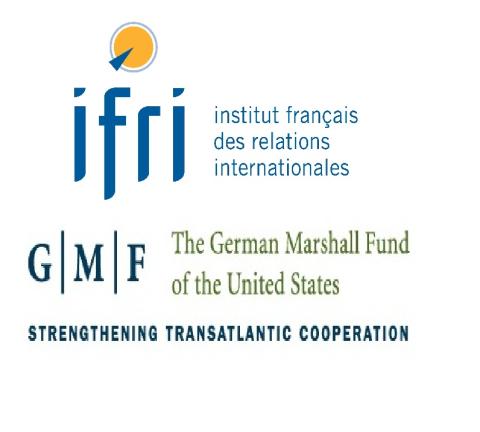
Practical information
15 June 2010
17h00 - 18h30
at
Conseil central de l'Economie (CCE)
19-21, Ave. de la Joyeuse Entrée
1040 Brussels, Belgium (Metro: Schuman)
Co-organized with the Centre Asie, Ifri and the German Marshall Fund of the United States,
this seminar welcomes:
Gary Schmitt
Resident Scholar and Director of Advanced Strategic Studies
at the American Enterprise Institute (AEI) in Washington, D.C. and
co-author and editor of The Rise of China: Essays on the Future Competition
and
Valérie Niquet
Senior Research Fellow at the Fondation pour la recherche stratégique (FRS),
sinologist, and expert on strategic affairs in Northeast Asia
Chaired by
Andrew Small
Transatlantic Fellow
German Marshall Fund of the United States
As China becomes the world's second largest economy, the need to protect its growing interests beyond its borders grows ever more pressing. For years China has espoused its desire for a multipolar world while simultaneously promoting the virtues of its "peaceful rise". As economic development no doubt transforms into economic, political and even military power, the strategic posture of the US and the positioning of European allies will have to adapt to the changing dynamics in Asia. How should the West respond to the strategic implications of China's rise? This first seminar in a series of conversations meant to stimulate transatlantic dialogue on security concerns in Asia aims to present the views of American and European experts in an attempt to better understand competing perspectives and the issues at stake.
Other events

From Ambition to Action: Exploring Technological Partnerships with India
The 16th EU-India Summit, held on January 27th in New Delhi with European leaders António Costa, Ursula von der Leyen, and Prime Minister Narendra Modi, marks a significant milestone in deepening EU-India relations. At the same time, official bilateral visits from EU member states are on the rise, including that of the French President, who visited India in February to participate in the Artificial Intelligence Summit. As India asserts its technological ambitions and seeks to reduce its dependence on China, Europe is stepping up its efforts to diversify its strategic partnerships.

The Enlargement of the European Union: A Strategic Choice? France, the Western Balkans and the EU in an Uncertain Geopolitical Context
Russia’s war against Ukraine has brought the enlargement of the European Union back to the centre of European strategic debates. In this context, the Western Balkans have regained heightened visibility in discussions on the continent’s security, at a time when the international environment is marked by a growing number of destabilising factors.






